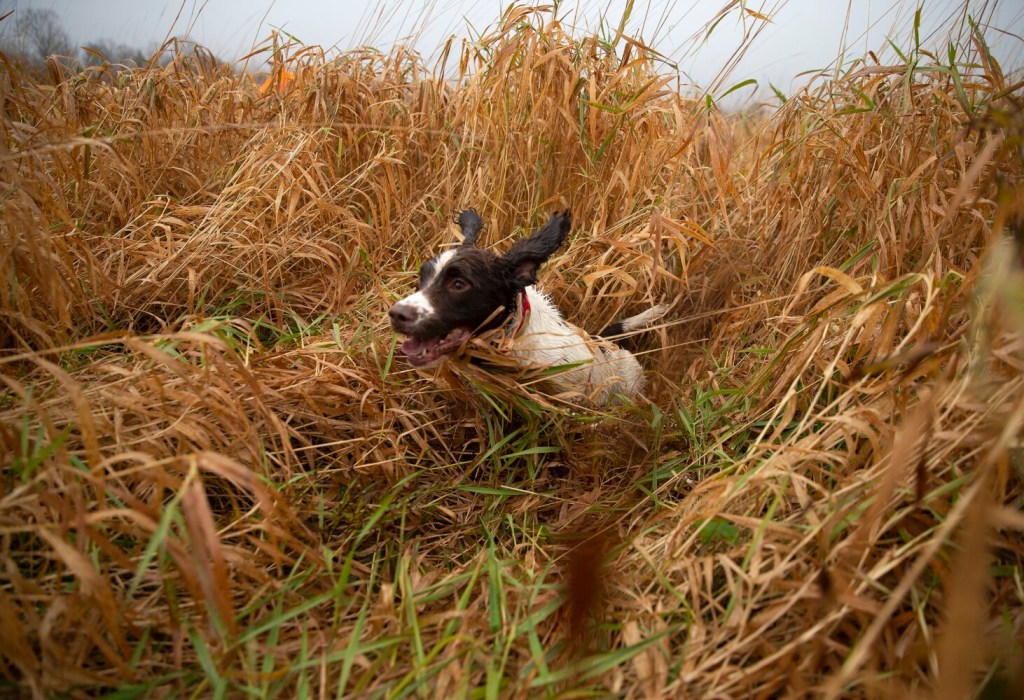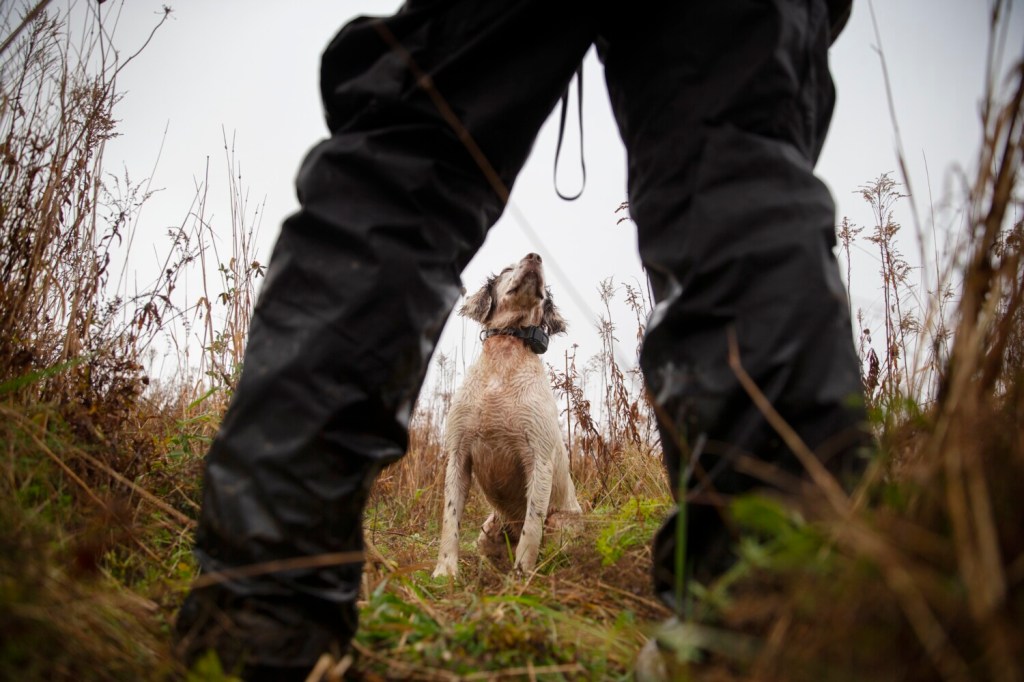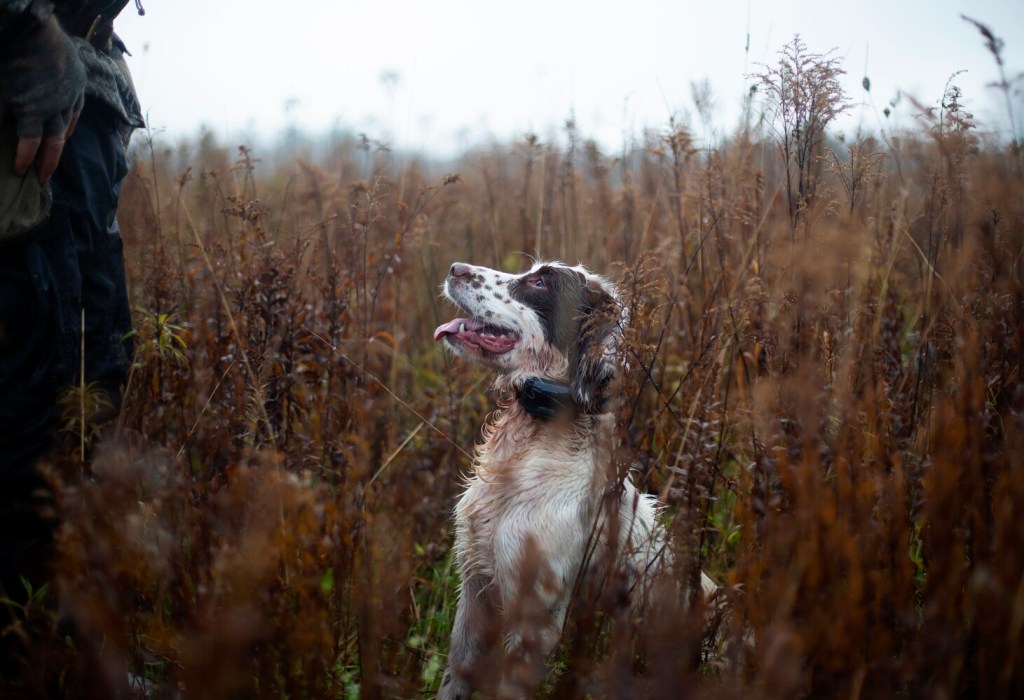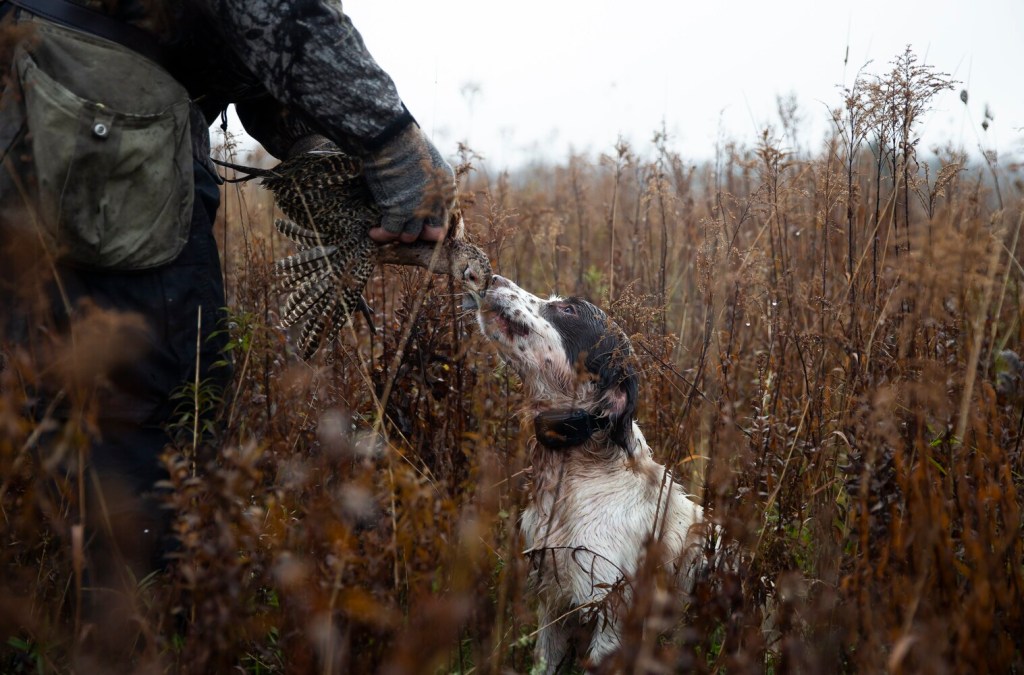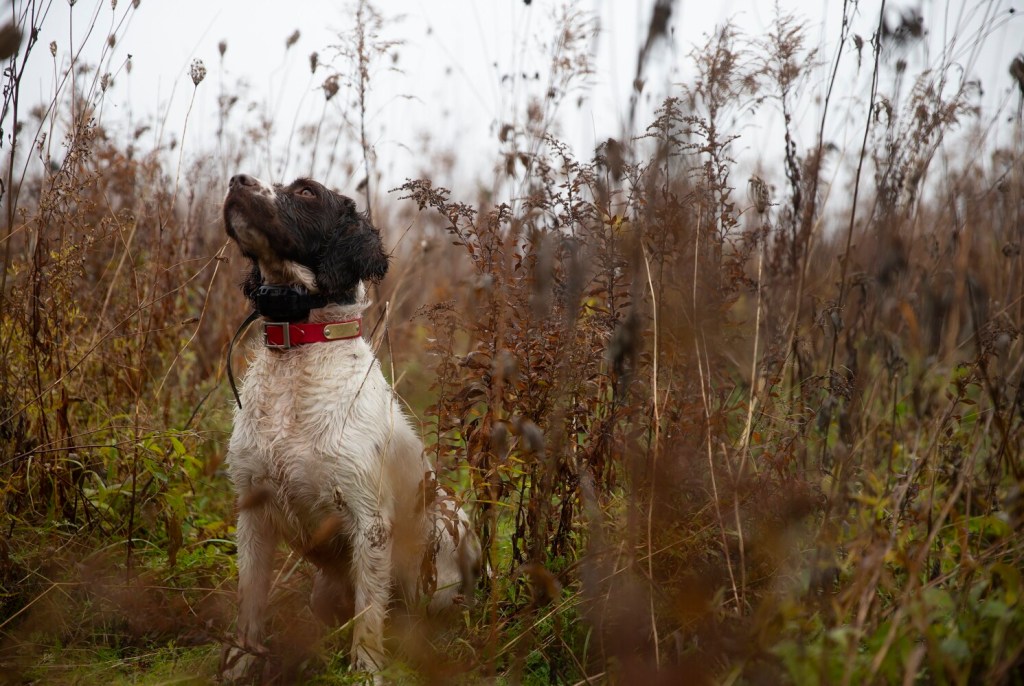KNOX — When Camie Barrow saw her springer spaniel puppy hot on a scent one day, she knew she had to give the hunting dog a sense of purpose. So Barrow had a bird-dog trainer work with Clancy and, eventually, run the dog in field trial championships.
But it wasn’t until after a professional trainer competed with Clancy with much success, that Barrow realized she was the one who needed training.
“We were both taking Clancy to competitions, but the results were different. I was the problem,” said Barrow, who lives in Brunswick.
So Barrow started to work with her dog in field trial training and in her free time, as well. And as Clancy started listening to Barrow more, she came to know her dog better. And they became a winning team.
Before long, Clancy placed second in a competition under Barrow’s direction, and the officials gave Clancy the “gun’s award,” honoring the dog as the one officials would most want to hunt over.
Many dog owners in greater Portland could learn much from such committed dog handlers – and their dogs. From the conflicts with loose, jumping dogs at Portland’s Baxter Woods to South Portland’s ongoing Willard Beach woes, it’s clear many dog owners don’t know how to stop and control unruly, loose dogs that jump on people.
Be assured, such antics never happen at a springer spaniel field trial competition. However, owners of champion springer spaniels readily attest, these spotted, spirited bird dogs that are wired through DNA to flush, find and retrieve also can misbehave with the best of them.
“They just don’t do it when we’re in the room,” Barrow said.
Two weeks ago at Wildwind Kennels in Knox, eight springer spaniel owners came to see nationally acclaimed trainer Jim Keller for a college-style refresher course before seven of them proceeded on to the U.S. National Amateur English Springer Spaniel Field Trial Championship in Watkins Glen, New York.

Ace, 4, jumps up on his owner Charlie Roberts of Holden after Roberts invited the dog to do so at a training session at Wildwind Kennels in Knox. Springer spaniels and their owners were preparing for the national field trial championships in Watkins Glen, New York. Derek Davis/Staff Photographer
A field trial competition simulates a hunt with the dog and handler following beside two officials with shotguns. The dog is then sent into the field to flush the partridge and, after it’s shot, the dog has to “mark the bird” – to watch where it falls – and retrieve it, often in high grass.
The best dogs – when working with knowledgeable handlers – execute the drills like focused, precise Marines, showing control, attention, drive, speed, ambition and accuracy.
At his 450-acre Wildwind Kennels, Keller has trained 108 field champions, seven national champions, and two dogs to national high-point open titles, which is when a dog has won the most points at competitions throughout a season. Keller trained the all-time high-point dog, as well as two named to the Field Trial Hall of Fame.
Many at his refresher course two weeks ago had champion dogs. And yet, what these dog owners and handlers said as they kissed, cuddled and held their dogs in their laps – is that these dogs can at times be goofy, misbehaving, infuriating friends.
Mike Nolan of Richmond, New Hampshire, who came to Wildwind Kennels with the 2020 national high-point dog, tells the story of the time one of his springers jumped on his kitchen island and ate two pounds of blueberries.
Barrow loves to tell the tale of how one of her springers dragged a stick of butter around her house, while another time four of her dogs had a banquet made of d-Con rat poison. All turned out fine after a trip to the veterinarian.
“They’re still dogs. Even when they’re off duty,” Barrow said.
And Barrow has become one of the nation’s top dog handlers. On Thursday, Barrow and her springer, Bailey, won the Amateur National Championship, as well as the guns award, making Barrow one of only five women handlers to have won the title since the first event in 1963.

Whitey, a 4-year-old springer spaniel, waits for a command from his owner, Daniel Kosewski of Hubbardston, Massachusetts, while training at Wildwind Kennels in Knox. Derek Davis/Staff Photographer
Deanna Keller, Jim Keller’s daughter, helps him train dogs. She said the tendency to underestimate this mischief in dogs is where many dog owners go wrong. Without giving direction to dogs on a regular, consistent basis when you’re with them, she said, dogs are apt to be naughty.
Deanna Keller said people need to speak the dogs’ language. Working and hunting dogs like springer spaniels and Labrador retrievers enjoy having a job and a task – and that means commands, exercise and rewards. And consistency is key, she adds.
After taking a friend’s black Lab that was spreading trash around the home when the owners left, Deanna Keller broke the dog of her destructive ways by working with her to heel and sit. The dog enjoyed the teamwork and the drills, Keller said, and stopped spreading trash around the home when left alone.
When Keller returned the dog to her friend’s family, she gave them directions, as well.
“If all four of the people in the household didn’t commit to what we were doing – having him heel and sit – then the work would be wasted,” Deanna Keller said.

Wildwind Kennels, an award-winning kennel in Knox, is preparing springer spaniel champions for the National Field Trial Championships in Watkins Glen, N.Y. Derek Davis/Staff Photographer
Gerry Mattaliano of Marshfield, Massachusetts, had far less experience as a dog handler than others at the Keller’s training session, having only gotten his springer, Gracie, just a few years ago. But the retired state trooper understood well the concept of training the dog – and training the humans in his household.
“When I bring her home, I call my family the untrainers,” Mattaliano said.
When dogs stopped listening during the training session at Wildwind Kennels, their owners doubled down on instructions. At one point, as the handlers worked on hand signals by whistling at the dogs and then signaling with their arms where the dog should look for a hidden marker, most of the dogs stopped, watched for direction and swung around in the direction they were shown.
However, Mattaliano’s Gracie struggled with the second of three exercises and took longer to find the small marker. Finally, when the dog did, Mattaliano called the tentative dog home. And Keller told him to skip the third exercise – and treat the dog who finally found success like a champion.
“She just won the lottery. Praise her. And let her end on that success,” Keller said.
Send questions/comments to the editors.


